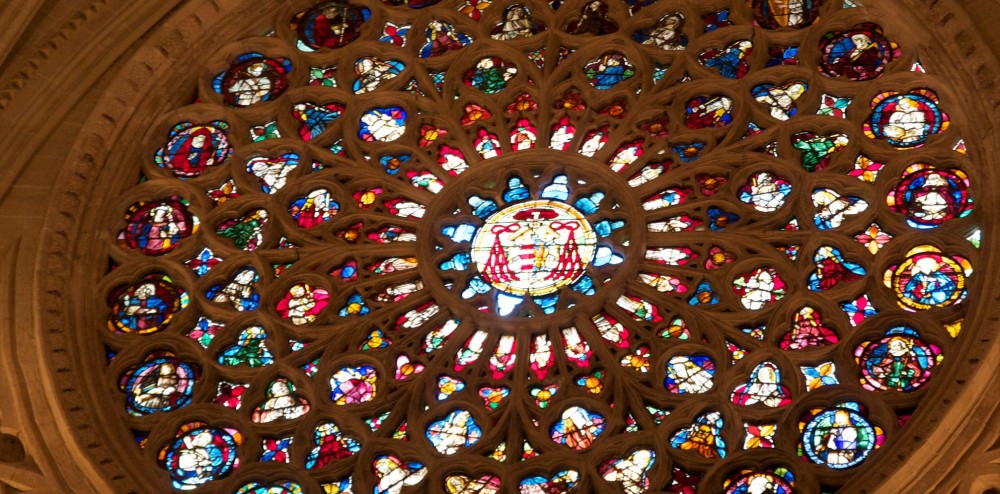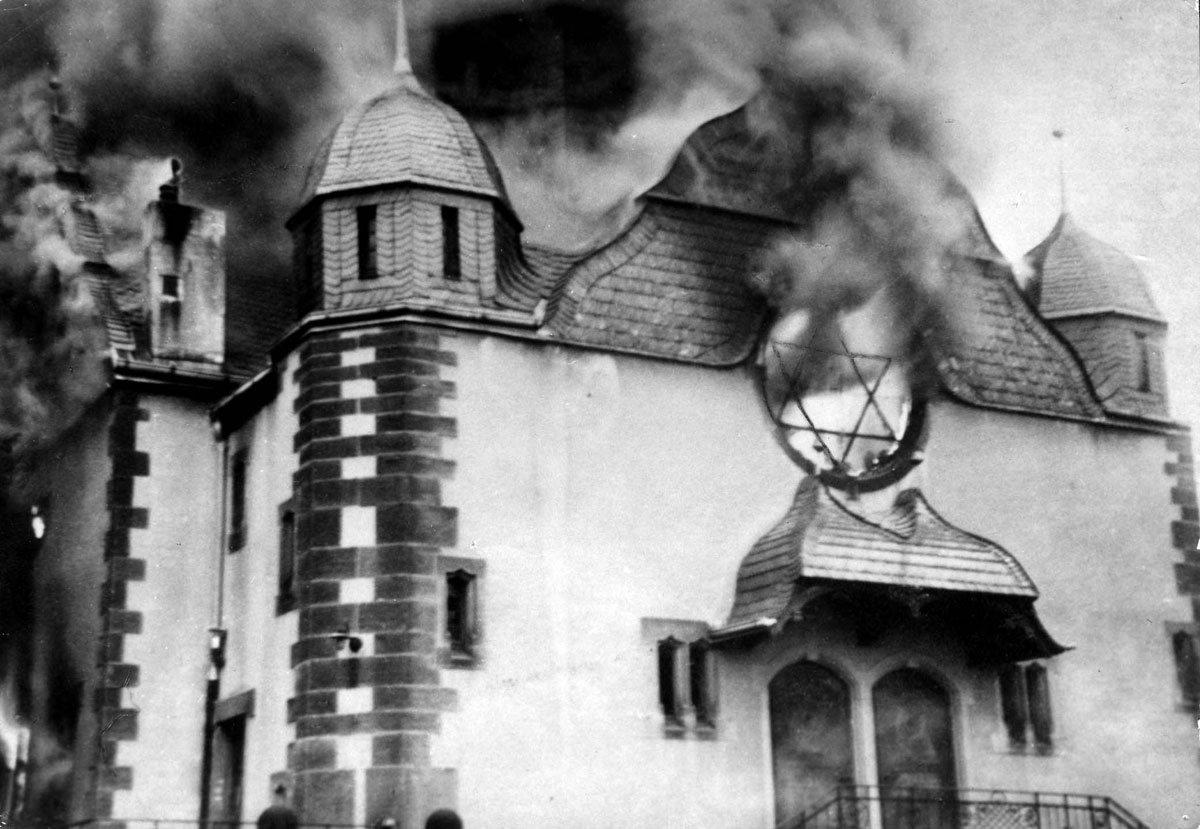Synagoge of Siegen, Germany, burning during Kristallnacht, November 9, 1938.
The year 2018 has provided occasions to recall the tragedy of World War I, “the war to end all wars.” The folly of this conflict casts a dismal shadow over the rest of the twentieth century. On November 11th we will commemorate “Armistice Day” and think of “Flanders Fields” and other cemeteries where the deceased among the Allies lie in lands far from their homes.
Among the attempts to recover from this war, the people of Germany elected a minority government and in January 1933 Adolf Hitler was designated as chancellor. Only 85 years ago, this decision introduced another tragic era in European and world history.
On the night of November 9-10, 1938 the ferocious attack on synagogues and Jewish businesses throughout Germany and Austria manifested the intention of the Nazi government to destroy the Jewish hope that previous legislation, boycotts and other signs of bigotry were temporary aberrations which could be borne with patience. Loss of civil and human rights by laws against the Jewish minority were completed by a viciousness that was met with silence on the part of the majority of the German people. On the 80th anniversary of these atrocities, we are exhorted to stand with the Jewish and other minorities to offset the dangers they face.
Pope Francis, in an audience with a delegation of the World Congress of Mountain Jews, drew attention to two other attacks on Jews during the Second World War: The 75th anniversary of the destruction of the Vilna ghetto in Lithuania and the deportation of Jews from Rome to their death in Auschwitz-Birkenau. Regarding Kristallnacht, he noted:
November 9th will mark the eightieth anniversary of the Kristallnacht, when many Jewish places of worship were destroyed, not least with the intent of uprooting from the hearts of individuals and a people that which is absolutely inviolable: the presence of the Creator. The attempt to replace the God of goodness with the idolatry of power and the ideology of hatred ended in the folly of exterminating creatures. Consequently, religious freedom is a supreme good to be safeguarded, a fundamental human right and a bulwark against the claims of totalitarianism. (November 5, 2018. For the entire text, click here.)
The next paragraph of the Pope’s message resonates deeply with us in the context of the recent attack on the Tree of Life Jewish congregation in Pittsburgh:
Sadly, anti-Semitic attitudes are also present in our own times. As I have often repeated, a Christian cannot be an anti-Semite; we share the same roots. It would be a contradiction of faith and life. Rather, we are called to commit ourselves to ensure anti-Semitism is banned from the human community.
At Seton Hall University, the 65th anniversary of the Institute of Judaeo-Christian Studies leads us to recall that in 1953, fifteen years after Father John M. Oesterreicher fled from Austria, he was able to begin again and to mature in his vision of Christians and Jews collaborating in the service of the God of Israel and of our neighbors. Now with the entire Church, we can take up Pope Francis’s words of blessing:
I ask the Almighty to bless our journey of friendship and trust, so that we can dwell always in peace and be, wherever we find ourselves, artisans and builders of peace. Shalom aleichem!

